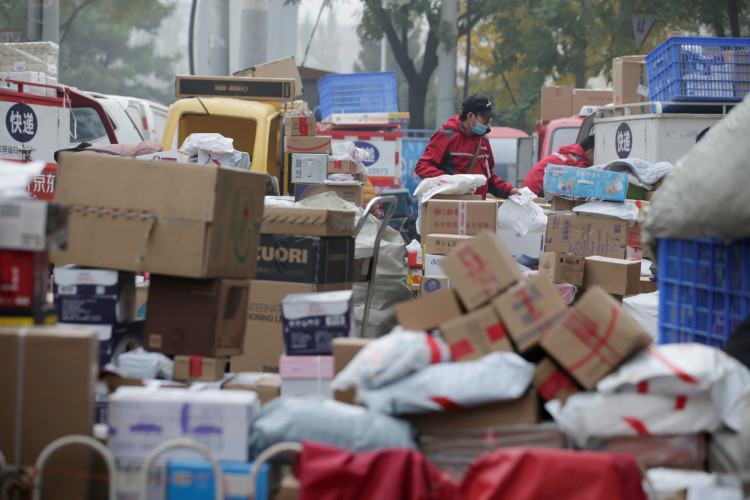China's once-glittering Singles' Day shopping festival, traditionally viewed as a bellwether of consumer sentiment, has lost much of its allure this year amid economic headwinds, including a real estate crisis and deflationary pressures. Merchants and consumers alike found the festival, originally launched in 2009 by e-commerce giant Alibaba, to be a far cry from its past splendor, as sluggish domestic spending forced e-commerce platforms to look beyond China's borders for growth opportunities.
Singles' Day, or "Double 11," has evolved from a one-day shopping extravaganza into a weeks-long event designed to maximize sales. Platforms like Alibaba, JD.com, and Pinduoduo expanded the festival both domestically and overseas, offering incentives such as global free shipping to attract new customers. Yet this year's tepid consumer participation has revealed cracks in what was once the world's largest shopping spree.
Amid mounting economic uncertainty, many Chinese consumers are spending less and scrutinizing promotions more critically. "Since the festival began in late October, I have only spent a few hundred yuan on daily necessities," said Beijing fitness center owner Wang Haihua, who is skeptical of so-called discounts. "They're all tricks, and we've seen through it over the years," she said. Xi'an-based barber shop owner Zhang Jiewei echoed similar sentiments, claiming that many promotions simply mask inflated prices. "I used to buy a lot during Singles' Day, but I stopped after the pandemic because of less income," Zhang added.
The downturn in consumer enthusiasm is not limited to individual buyers. Merchants have also grown wary of the costs associated with participating in the festival, from high advertising fees to complicated promotional rules that often erode profit margins. Zhao Gao, who operates a garment factory in Zhejiang province, explained that after covering advertising expenses, sales merely allowed him to break even. "The platforms have so many rules for promotions, and customers have become more skeptical," he said. Another merchant, Du Baonian, who runs a mutton processing company in Inner Mongolia, reported a 15% decline in sales compared to previous years. "The higher expenses do not typically generate returns because of slow sales," he noted, though he continues to participate to maintain market visibility.
As domestic consumption dwindles, e-commerce giants have intensified their focus on global markets. Alibaba, for instance, highlighted that some 70,000 merchants saw their sales double with global free shipping offers, noting significant growth in markets like Singapore and Hong Kong. Jacob Cooke, CEO of WPIC Marketing + Technologies, observed a shift in consumer preferences during this year's festival. "There's a clear shift in consumer priorities towards experiences, hobbies, and health," he said, adding that demand for premium brands in categories like personal care, toys, and outdoor gear remained resilient.
Nevertheless, the broader economic backdrop has stymied overall growth. Data provider Syntun estimated that last year's gross merchandising volume across major e-commerce platforms grew a mere 2% to 1.14 trillion yuan ($156.4 billion), far from the double-digit growth rates seen before the pandemic. Platforms like Alibaba and JD.com have stopped publicizing total sales figures since 2022, underscoring the challenges in maintaining the festival's growth trajectory.
Shaun Rein, founder of the China Market Research Group, explained that ongoing economic weakness and consumer belt-tightening have dulled the festival's appeal. "People are not interested in spending and are cutting back on big-ticket items," he said, noting that discounts throughout the year have further eroded the festival's impact.
Despite the downturn, certain product categories have seen better performance. Sportswear and fitness products have benefited from consumers "trading down a Gucci bag for Lululemon sportswear," Rein remarked. While e-commerce platforms and merchants continue to grapple with shifting consumer behaviors, the broader message from this year's Singles' Day is clear: adaptation is critical in a changing economic landscape.






